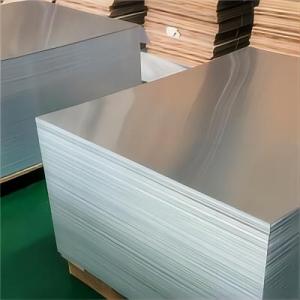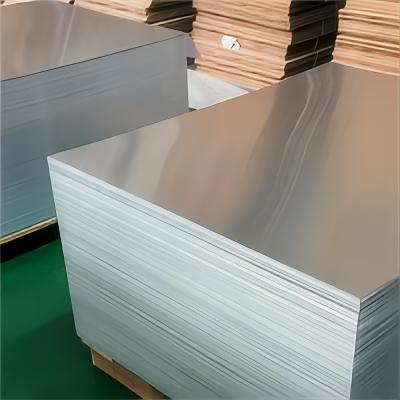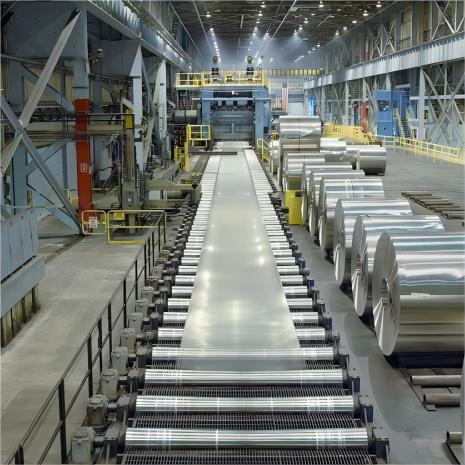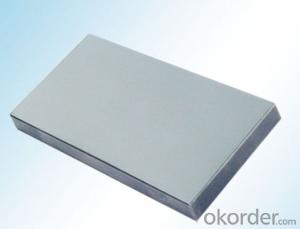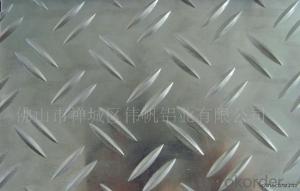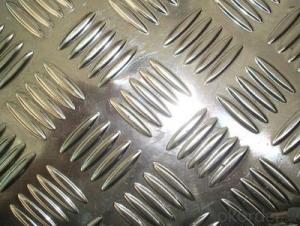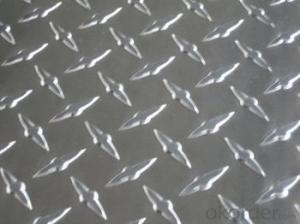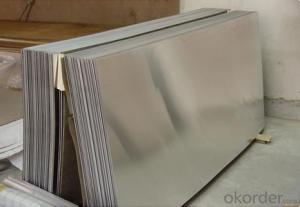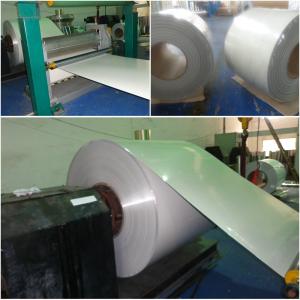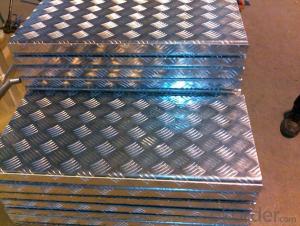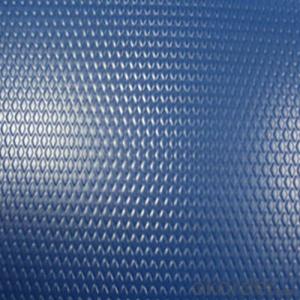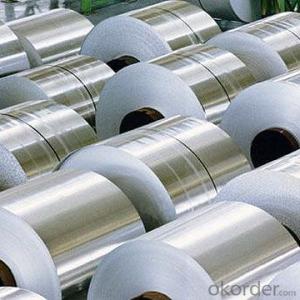Aluminum Sheet Embossed Aluminum Sheet Coated Aluminum Sheet
- Loading Port:
- China main port
- Payment Terms:
- TT or LC
- Min Order Qty:
- 3 m.t.
- Supply Capability:
- 100000 m.t./month
OKorder Service Pledge
OKorder Financial Service
You Might Also Like
Specification
Aluminium sheets come in a wide range of grades and thicknesses, offering solutions for different needs. Whether in standard sizes or custom
specifications, aluminium sheets are produced with strict manufacturing processes to ensure stable quality and reliable performance.
With its outstanding properties and versatility, aluminium sheet is a preferred material choice across numerous sectors.
Advantages:
Lightweight: Aluminium sheets are significantly lighter than many other metals, making them ideal for applications where weight reduction is crucial.
Corrosion Resistance: Aluminium naturally forms a protective oxide layer, which enhances its resistance to corrosion, particularly in harsh environments.
High Strength-to-Weight Ratio: This property allows for the creation of strong yet lightweight components, beneficial in industries like aerospace and automotive.
Malleability: Aluminium sheets can be easily formed into complex shapes, allowing for diverse design possibilities.
Thermal Conductivity: Aluminium is an excellent conductor of heat, making it suitable for applications like heat sinks and thermal management systems.
Recyclability: Aluminium is fully recyclable, making it an environmentally friendly material choice. Recycled aluminium retains its original properties, supporting sustainable practices.
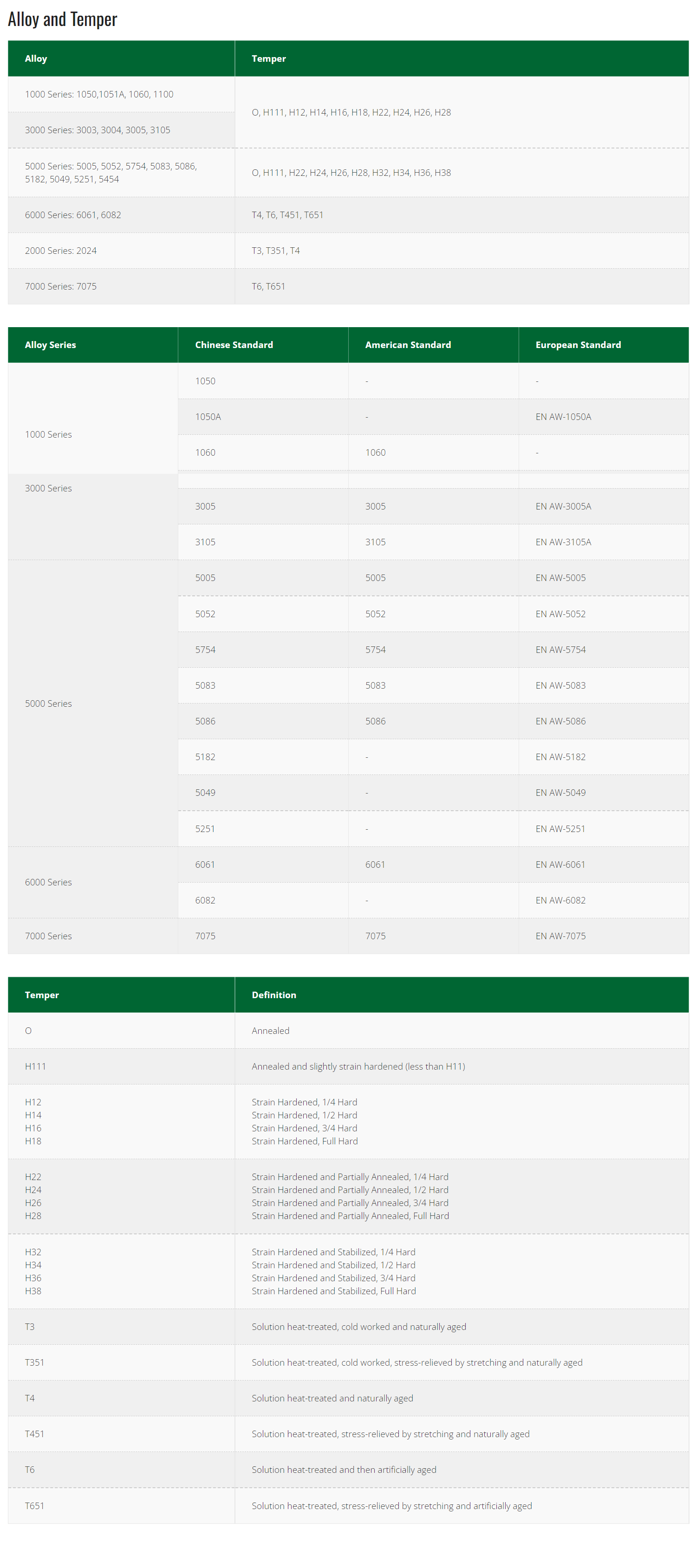
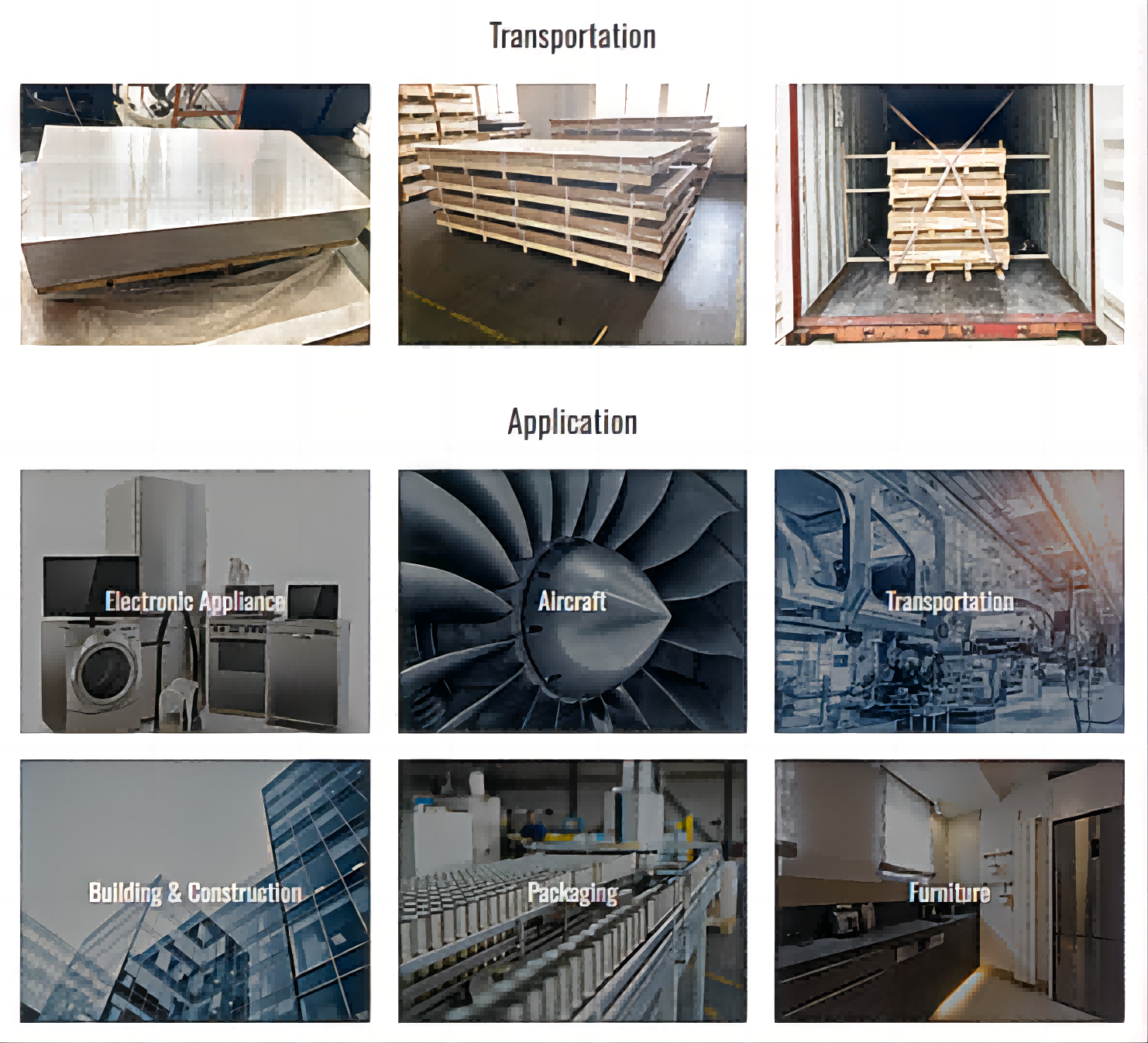
Images:
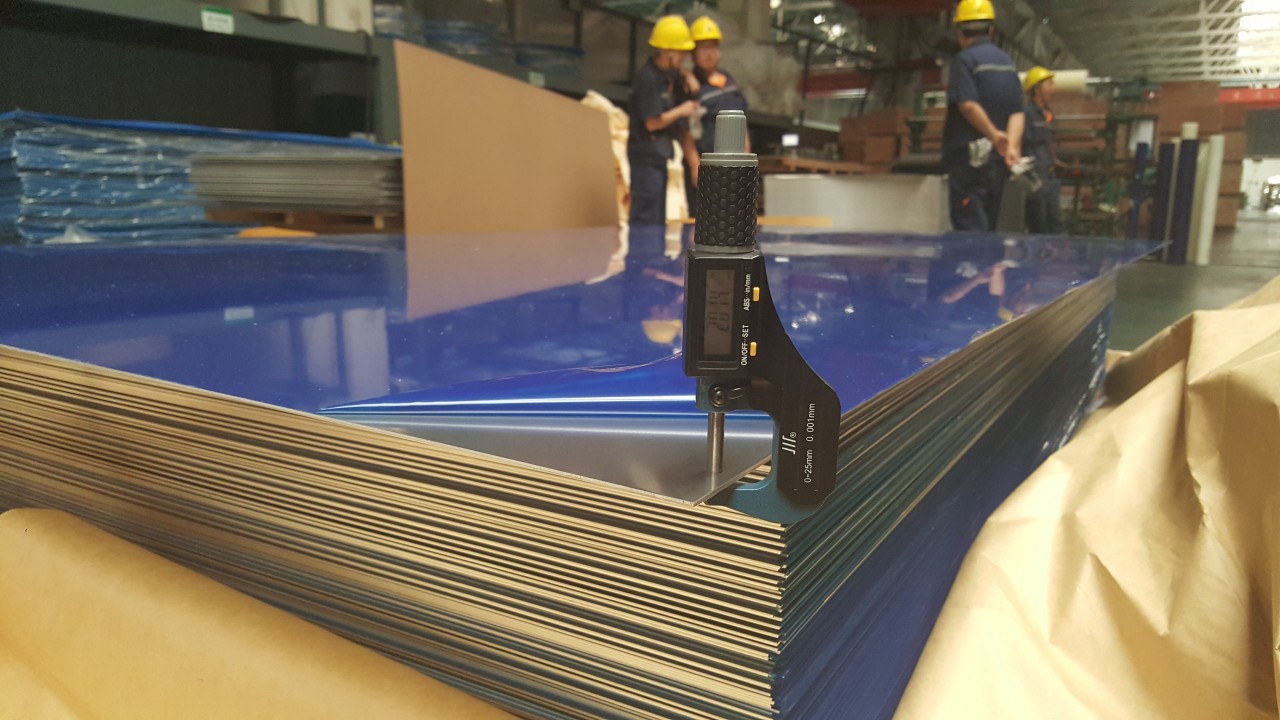
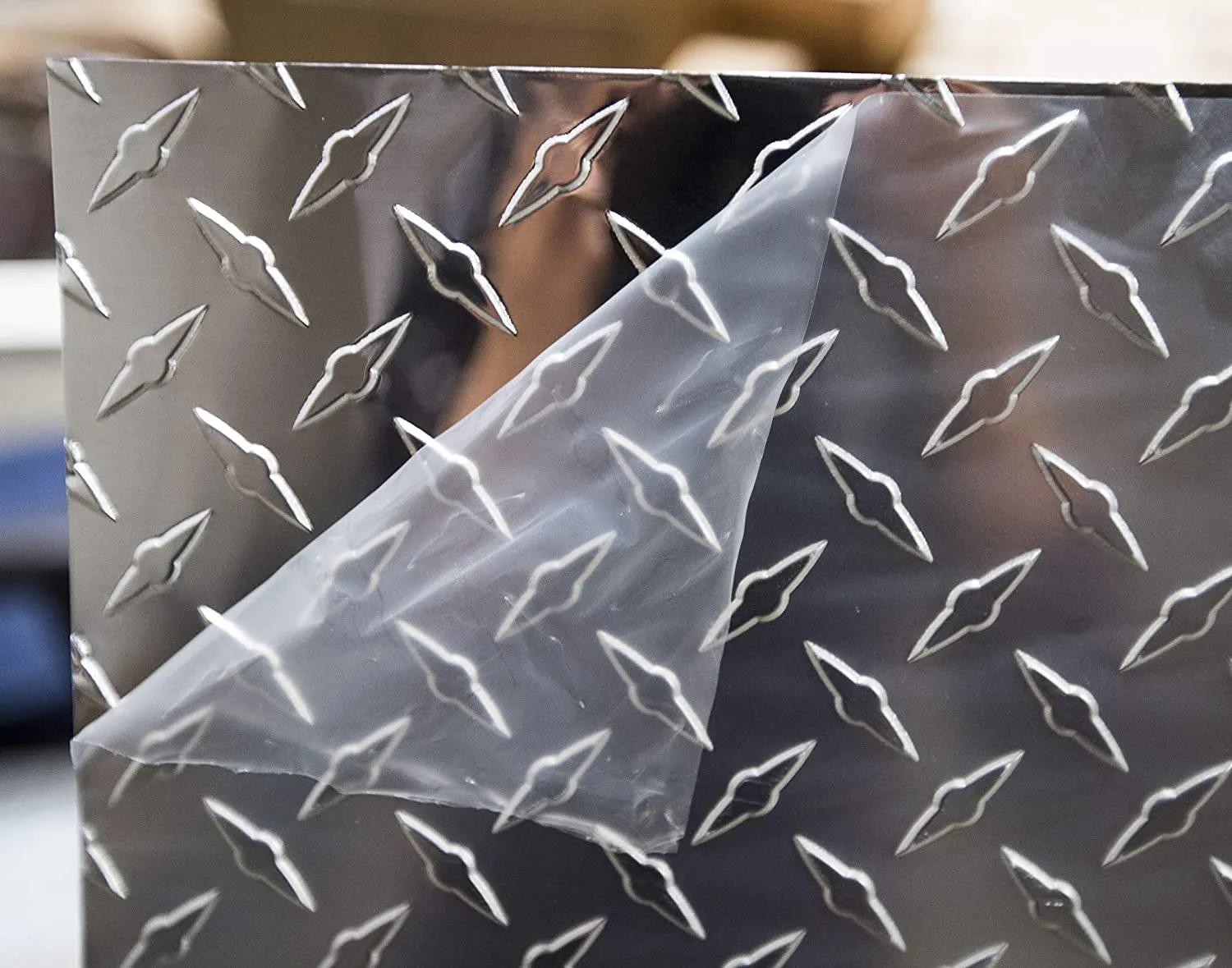
Maintenance and Care:
Cleaning: Regular cleaning with mild detergent and water can maintain the appearance and prevent build-up of contaminants.
Protection: For enhanced durability, consider applying protective coatings such as anodizing or painting.
Inspection: Periodic inspection for signs of wear, corrosion, or damage ensures long-term performance and safety.
Handling: Proper handling during transport and installation prevents dents, scratches, and other damage.
FAQ:
1. what is aluminum?
Aluminium (or aluminum; see spelling differences) is a chemical element in the boron group with symbol Al and atomic number 13. It is a silvery white, soft, nonmagnetic, ductile metal. Aluminium is the third most abundant element (after oxygen and silicon), and the most abundant metal in the Earth's crust. It makes up about 8% by weight of the Earth's solid surface.
Aluminium metal is so chemically reactive that native specimens are rare and limited to extreme reducing environments. Instead, it is found combined in over 270 different minerals.The chief ore of aluminium is bauxite.
2.What's kind of payment term we can supply?
CIF,CFR, FOB and other.
3.Can we supply samples?
Yes, we can!
4.What can you do if you have other quastions?
You can contact us freely at any time!
- Q: How do you ensure the surface quality of aluminum sheets?
- To guarantee the surface quality of aluminum sheets, manufacturers can take several steps: 1. Cleanliness is crucial. Prior to any surface treatment or inspection, it is vital to thoroughly clean the aluminum sheets and eliminate any dirt, grease, or contaminants. This can be accomplished using solvents, detergents, or specialized cleaning agents. 2. A visual inspection is necessary. Trained personnel should visually inspect the surface for visible flaws such as scratches, dents, or pitting. Proper lighting and magnification tools should be utilized. 3. Chemical treatments may be required. Depending on the desired surface finish and application, aluminum sheets may undergo chemical treatments such as anodizing, chromate conversion coating, or passivation. These processes can enhance the sheets' surface quality, corrosion resistance, and aesthetic appearance. 4. Mechanical polishing can be employed. To eliminate surface imperfections and achieve a smooth, glossy finish, mechanical polishing techniques like grinding, buffing, or sanding can be utilized. It is important to maintain consistency and avoid over-polishing, which can compromise the integrity of the sheets. 5. Coating and protection are essential. Applying protective coatings like lacquers, paints, or powder coatings can further improve the surface quality, appearance, and durability of aluminum sheets. These coatings act as a barrier against corrosion, abrasion, and environmental factors. 6. Quality control is crucial. Rigorous quality control procedures should be implemented throughout the manufacturing process. Regular inspections, testing, and documentation should be conducted to ensure that the surface quality of aluminum sheets meets the required standards and specifications. 7. Proper handling and packaging are necessary. To prevent surface damage during transportation and storage, it is important to handle and package the sheets correctly. Protective measures such as using protective films, paper interleaves, or cushioning materials should be employed to safeguard the surface quality until the sheets reach their final destination. By following these measures, manufacturers can ensure that the surface quality of aluminum sheets meets the desired specifications and exceeds customer expectations.
- Q: I'm wanting to buy colorguard poles, and I found some good deals on aluminum and fiberglass ones. But what are the pros and cons of each one?
- I'd say fiberglass because... - Durability - Aluminum is a very bendable metal. It dents, it bends, and it breaks easier than any other metal pole you'll find. This is because it's a very low density metal. - Flexibility = more dramatic twirling due to pole flex, and it's less breakable. - Counter Weight = A flag on one side of the pole would be harder to move around swiftly without a counterweight. Thus a heavier pole would entail having a center of gravity on the flag pole closer to the hand, making it easier to maneuver the flag, but the pole would be harder to lift as a whole. I'm no expert on colorguard poles, though. Fiberglass has come a long way. While aluminum is always the same material, fiberglass is a constantly evolving building material.
- Q: My frame snapped and I want to fix it by welding it back together. In order to do that, I need to know what all is in the aluminum.
- You can NOT weld back an aluminum frame unless you have the facilities to anneal and heat treat the frame again. Rewelding without the post treatments will result in a very soft area around the new weld causing sudden catastrophic failure... this means if you are riding it could fail at any time causing injury or death. EDIT: Wait just a durn minute. The 2100 and 2300 had carbon fiber tubes bonded to aluminum lugs and stays. If your bike failed then you ABSOLUTELY should not try to weld it. The heat from welding (even if you had post treatment facilities) would destroy the bond between the CF and aluminum. Fair warning- cut the frame apart and throw it away.
- Q: Can aluminum sheets be easily bent or shaped?
- Yes, aluminum sheets can be easily bent or shaped due to their malleability. Aluminum is a soft and lightweight metal that possesses excellent formability characteristics, making it highly suitable for various shaping processes. It can be easily bent, folded, or formed into different shapes using a variety of techniques such as press braking, roll forming, or stretch forming. The malleability of aluminum allows it to be easily molded into intricate shapes without cracking or breaking. Additionally, aluminum's low melting point makes it possible to heat and shape it further using processes like hot bending or thermoforming. Overall, aluminum sheets offer great flexibility and ease of shaping, making them a popular choice in industries such as automotive, aerospace, construction, and manufacturing.
- Q: Aluminum plate 90 degree bending, why cracking?
- Should be the aluminum sheet material and status is wrong, I wonder what brand aluminum plate?.Use 1060 Aluminum plate, condition: soft, 90 degree bending, won't crack
- Q: What is the lifespan of the aluminum sheets?
- The durability and longevity of aluminum sheets can differ due to various factors, including the aluminum's quality, the usage environment, and the level of maintenance provided. Despite this, aluminum sheets are renowned for their long-lasting nature. On average, these sheets endure for approximately 20 to 30 years, but by ensuring proper care and maintenance, their lifespan can surpass this estimate. To extend the longevity of aluminum sheets, it is beneficial to regularly clean them, shield them from severe weather conditions, and prevent exposure to corrosive substances.
- Q: Can 101 aluminum sheets be used in the construction industry?
- Yes, 101 aluminum sheets can be used in the construction industry. Aluminum sheets are commonly used in construction due to their lightweight nature, durability, and corrosion resistance. The specific grade of aluminum, in this case, 101, may refer to the alloy composition and properties of the aluminum sheets. While there are numerous aluminum alloys available, each with its own unique characteristics, 101 aluminum sheets can certainly be utilized in various construction applications. However, it is important to note that the suitability of aluminum sheets for specific construction projects may depend on factors such as the required strength, load-bearing capacity, and environmental conditions. Therefore, it is advisable to consult with engineers or construction professionals to determine the most appropriate type and grade of aluminum sheets for a specific construction project.
- Q: Are aluminum sheets suitable for use in cryogenic environments?
- Yes, aluminum sheets are suitable for use in cryogenic environments. Aluminum has excellent thermal conductivity, low density, and good mechanical properties at low temperatures, making it an ideal choice for applications in cryogenic environments. Additionally, aluminum has a low coefficient of thermal expansion, which allows it to maintain its structural integrity even under extreme temperature fluctuations.
- Q: How do you clean aluminum sheets?
- Achieving cleanliness for aluminum sheets involves a few straightforward steps: 1. Initiate the process by eliminating any loose dirt or debris from the aluminum sheet's surface. Use a soft brush or cloth to gently sweep away any particles. 2. Create a cleaning solution by combining warm water with a mild detergent or dish soap. It is crucial to avoid strong chemicals or abrasive cleaners since they can harm the aluminum. 3. Submerge a soft cloth or sponge into the cleaning solution and delicately scrub the aluminum sheet. Ensure that the entire surface is covered, giving extra attention to any stains or spots. 4. In the case of persistent stains or marks, utilize a non-abrasive cleaner specifically designed for aluminum. Apply the cleaner onto a soft cloth and gently rub it onto the affected area until the stain is eliminated. 5. Thoroughly rinse the aluminum sheet with clean water to eliminate any soap residue. This step is vital to prevent the accumulation of residue or streaks on the surface. 6. Dry the aluminum sheet completely using a soft towel or cloth. Verify that there is no remaining moisture as it can lead to water spots or corrosion over time. 7. To enhance shine and provide protection, apply a thin layer of aluminum polish or wax. This procedure aids in restoring the luster and safeguarding the aluminum from future tarnish or oxidation. It is important to acknowledge that the cleaning technique may differ based on the type of dirt or oxidation present on the aluminum sheet. Always refer to and adhere to the manufacturer's instructions for specific cleaning recommendations.
- Q: Iron is extracted from iron oxide by displacement with carbon.But aluminum is not extracted from aluminium oxide using displacement by carbon. Suggest a reason for this.
- Well, de facto because the heat of formation of aluminum oxide is so much greater than the heat of formation of iron oxide. If you're looking for something more mechanistic, find Al and Fe in the periodic table. Al and Fe are in different rows, and Fe is larger than Al, so although Al+3 and Fe+3 have the same charge, oxygen bonds less strongly to Fe+3 than to Al+3 because it's further away from the nucleus of Fe. Al+3 has no outer shell electrons at all; 3s, 3p, and 3d subshells are all empty. It's effectively a charged sphere with nothing to interfere with bonding. Fe+3 (as in hematite, Fe2O3) is larger, has filled 3s and 3p subshells, and a half-filled 3d subshell. That 3d electron density projects pretty far out into space, holding oxygen at arms length. Aluminum has no electron density in 3d orbitals, so oxygen can tuck in nice and tight and get a good grip. Any of these hit the mark? I don't know what background you're bringing to this question.
Send your message to us
Aluminum Sheet Embossed Aluminum Sheet Coated Aluminum Sheet
- Loading Port:
- China main port
- Payment Terms:
- TT or LC
- Min Order Qty:
- 3 m.t.
- Supply Capability:
- 100000 m.t./month
OKorder Service Pledge
OKorder Financial Service
Similar products
Hot products
Hot Searches
Related keywords
